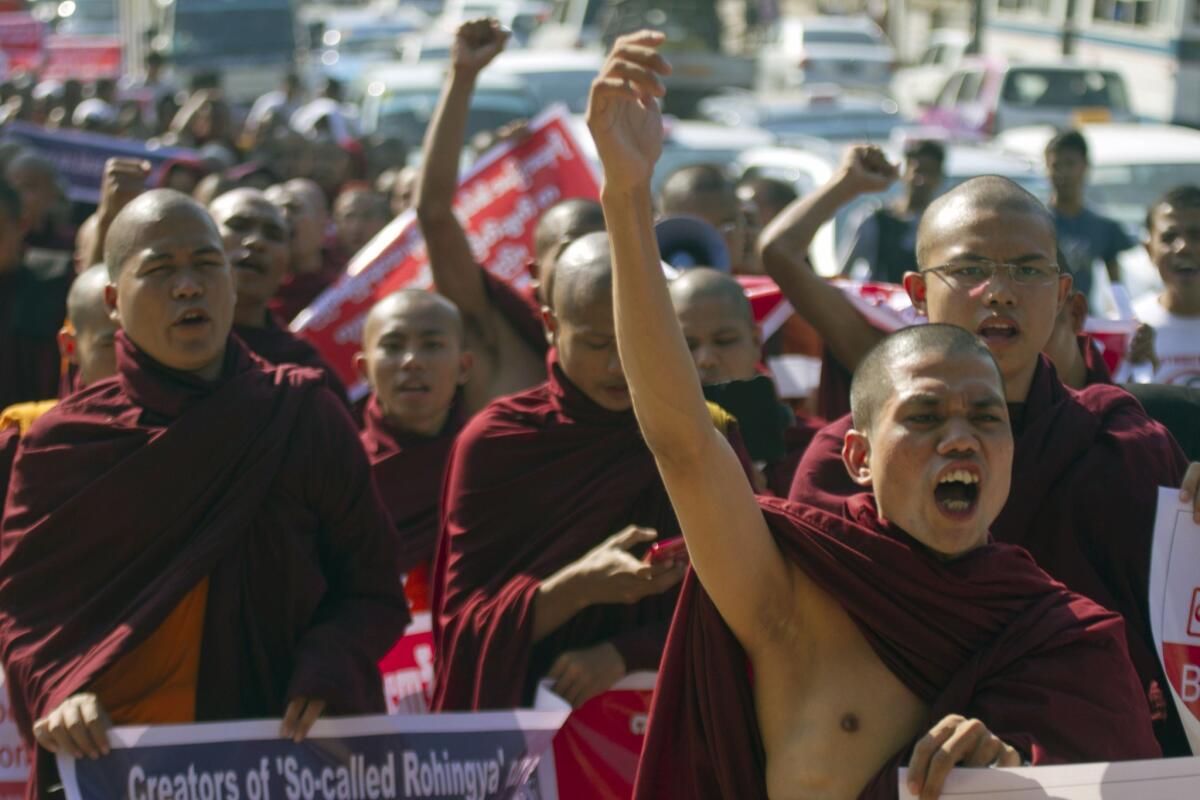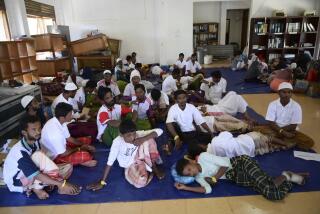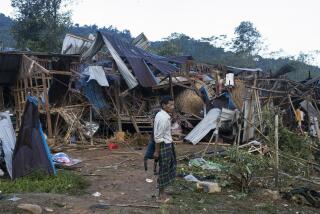U.S., U.N. envoys warn Myanmar against stoking religious tensions

Top U.S. and U.N. diplomats on human rights wrapped up separate visits to Myanmar on Friday with warnings that discrimination against religious minorities in the predominantly Buddhist nation is stoking already dangerous sectarian tensions.
At a news conference concluding his six-day visit, U.S. Assistant Secretary of State Tom Malinowski said Myanmar’s leaders were at risk of provoking ethnic and religious conflict in their treatment of minorities and urged rejection of proposed laws that would limit interfaith marriage and religious conversion.
“We expressed a concern that the use of religion in particular, to divide people - whether it is done for political or any other purposes, is incredibly dangerous, particularly in an election year,” Malinowski told reporters. “We expressed a concern that this is really playing with fire and exposes the country to dangers that it is not prepared to handle.”
Clashes between security forces and stateless Rohingya Muslims in northern Rakhine state have killed 240 over the last two years and left 140,000 of the repressed minority in fetid camps without adequate food, medical care or education.
A U.N. General Assembly resolution in November urged the government of Myanmar, also known as Burma, to grant citizenship to the Rohingyas, who number more than a million and are the targets of discrimination by much of the Buddhist majority that regards them as illegal Bengali immigrants. The resolution has been denounced by Buddhist nationalists as interference in their country’s domestic affairs with the intent to impose Islamic culture and religion in Myanmar.
In response to pressure from Buddhist politicians, the government of President Thein Sein has introduced measures in parliament that would put up barriers to interfaith marriage.
The United Nations’ special envoy for Myanmar, Yanghee Lee, also wrapped up a 10-day tour of the country, including a visit to Rakhine state and a camp housing displaced Rohingyas.
“I am concerned that these four bills could inflame already existing tensions between religious groups,” she said of the legislation proposed to prevent integration of the Buddhist, Muslim and Christian communities. “I therefore strongly urge all parliamentarians to closely scrutinize these bills, in full consultation with affected communities, and to reject them in their entirety.”
As Lee spoke to reporters in Yangon on Friday, hundreds of fist-pumping Buddhist monks in crimson robes chanted in protest against the U.N. official, who they see as an advocate for the Rohingyas, the Associated Press and Agence France-Presse reported from Yangon.
The Istanbul-based World Bulletin network said the monks were “outraged” by the U.N. appeal for citizenship and integration of the Rohingyas.
Muslims and Christians each account for about 4% of Myanmar’s 56 million population, of which 89% is Buddhist.
Both Malinowski and Lee expressed concern that the government, which has only been headed by a civilian since 2011, was backtracking on the reforms embraced after more than half a century of military dictatorship.
Malinowski pointed to continuing arrests of political opponents and sectarian clashes between the Buddhist-dominated army and ethnic minorities in Kachin, Shan and Rakhine states as indications that the reforms announced four years ago are losing momentum.
Myanmar has been hailed for the military junta’s move in 2011 toward restoring democracy in the country and the release from two decades of imprisonment and house arrest of rights activist Aung San Suu Kyi.
The elected parliament, however, has yet to adopt the constitutional and legal changes necessary to allow the country’s most famous democracy advocate to run for president when elections are held toward the end of this year.
“There is a great deal of skepticism in some quarters about whether the reform process is continuing, and fears about tensions and other problems that might arise in a year in which the election will be first and foremost in people’s minds,” the U.S. assistant secretary of State for democracy, human rights and labor told journalists.
Lee warned that if the bills aimed at thwarting religious conversion or intermarriage are passed, as they are expected to be soon by the Buddhist-dominated legislature, that it “could be viewed as one of the indicators of backtracking in the political reform process.”
Follow @cjwilliamslat for the latest international news 24/7
More to Read
Start your day right
Sign up for Essential California for news, features and recommendations from the L.A. Times and beyond in your inbox six days a week.
You may occasionally receive promotional content from the Los Angeles Times.







